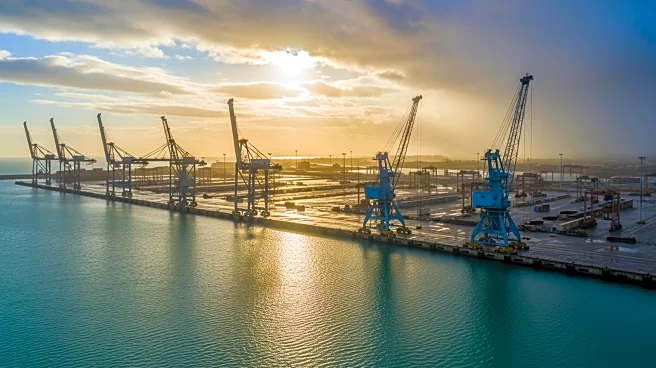What's Happening?
The Pacific Asia Travel Association (PATA) has released a new report titled 'Developing Sustainable Tourism in Tropical Coastal Cities: Global Case Studies.' The report highlights four key pillars essential for sustainable tourism development: proper
resource management, harmonious coexistence between locals and residents, diversification of the economy and tourism products, and successful implementation of sustainable practices across the private sector. The report was launched during the 2025 Tropical Coastal City Tourism Event, organized by the Sanya Tourism Board and supported by PATA. It addresses the challenges faced by tropical coastal cities, such as climate change and high visitor volumes, and provides strategies for balancing economic growth with environmental conservation and socio-cultural sustainability.
Why It's Important?
The report is significant as it provides a framework for sustainable tourism development in tropical coastal cities, which are critically threatened by climate change and human activities. By focusing on resource management, economic diversification, and sustainable practices, the report aims to guide cities in mitigating environmental impacts while promoting tourism. This is crucial for maintaining the ecological balance and supporting local communities. The insights and case studies presented in the report can help policymakers, tourism operators, and local governments implement effective strategies to ensure long-term sustainability and resilience in the face of environmental challenges.
What's Next?
The report encourages knowledge-sharing and coordinated action among stakeholders to address the urgent issues facing tropical coastal cities. It is expected that cities will adopt the strategies outlined in the report to enhance their tourism practices. Stakeholders may organize workshops and training sessions to disseminate the findings and promote collaboration. Additionally, cities might explore partnerships with environmental organizations and invest in technologies to improve resource management and conservation efforts. The report could also influence policy changes and inspire new initiatives aimed at sustainable tourism development.
Beyond the Headlines
The report not only addresses immediate environmental concerns but also emphasizes the importance of socio-cultural sustainability. By promoting harmonious coexistence between locals and tourists, the report advocates for tourism practices that respect local cultures and traditions. This approach can lead to more inclusive and equitable tourism development, benefiting both residents and visitors. Furthermore, the report highlights the role of innovation in achieving sustainability, encouraging cities to adopt new technologies and practices that reduce environmental impact and enhance the tourism experience.















